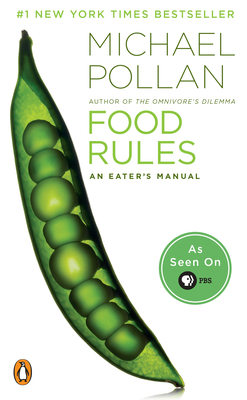Have you been told by your health practitioner that you or your child need to cut gluten out of your diet to address a health concern? Do you want to understand more about why cutting out gluten may help you deal with that health issue? In this post, we answer some common questions that patients ask about gluten sensitivity.
Read moreWhat We Put On Our Skin Matters
Screen Shot 2012-03-19 at 4.52.08 PM
As a friend once told me, after finding out that I rarely used lotion or oil on my skin, "Your skin is your biggest organ, you have to keep it healthy".
She was right, of course. Our skin is the largest organ we have. It is our great protector - safeguarding our bodies against bacteria and viruses, helping us hold on to water and keeping us warm, or cooling us off when we're hot. It houses one of our most basic senses - touch - which is so important that babies who don't have skin contact with other mammals fail to thrive and can even die. Our skin also nourishes us by taking the light from the sun and producing Vitamin D (really more of a hormone than a vitamin) which is important for immunity, bone health, digestive health, and more. In Traditional Chinese Medicine, the skin and the spaces between the skin and muscle are governed by the Lung organ system, and this is where the defensive Qi of the body (similar to the body's innate immunity) circulates.
As I started to look for moisturizers to put on my skin, I was shocked to learn more about all the ingredients that go into cosmetics and personal care products. Recent research in the news about the link between parabens and breast cancer, as well as the connection between hair relaxer use and the risk of uterine cancer in African-American women, has brought the issue of safe cosmetics to the fore again.
Unlike with foods and drugs, the FDA does not pretest the personal care products turned out by the $30 billion cosmetics industry. Instead, it relies on the companies making the products to ensure the ingredients they use are safe. The Environmental Working Group of Washington, D.C. recently petitioned the Food and Drug Administration to issue warning labels on 356 personal-care products that contain ingredients that have not been thoroughly tested. Lucky for us, the Environmental Working Group has created a database where you can check you personal-care product for toxicity!>
Here's a few tips they offer for reading the labels of your skin care products:
Choose Fragrance-Free - Two years ago, the International Fragrance Association published a list of ingredients that its members reportedly use to make fragrances for consumer products. Of the 3,163 chemicals listed, several stand out as particularly toxic: phthalates, octoxynols and nonoxynols. (Phthalates are potent hormone disruptors linked to reproductive system birth defects in baby boys. Octoxynols and nonoxynols break down into persistent hormone disruptors, as well.) Look for these words as well: "FRAGRANCE," "FD&C," or "D&C." which companies can list in lieu of the actual fragrance ingredients.
A short list of other ingredients to avoid are:
Words ending in "paraben"
ingredients that start with "PEG" or have an "-eth" in the middle (e.g., sodium laureth sulfate)
DMDM hydantoin
Imidazolidinyl urea
Methylchloroisothiazolinone
Methylisothiazolinone
Triclosan
Triclocarban
Triethanolamine (or "TEA")
Phew! That's a lot to remember when you're in the store. We can group a few of them together - if you can remember to 'Tri' to stay away from the "methyl-ones", that takes care of half the list. And once again, you can look up products on EWR's cosmetics database to find out their relative toxicity. Here's a two minute video from EWR about commonly found ingredients in cosmetics and personal-care products:
Books from the library: The China Study
Since we've all just recovered from the Thanksgiving Turkey, only to gear up for the Christmas Goose/Chanukah brisket, I thought I'd share this very important book with you.
The China Study tells the story of T. Colin Campbell, PhD, a prominent researcher in nutrition science who, over 30+ years of studying the effects of diet on cancer, has come to the conclusion that eating animal-based protein (meat, eggs, and dairy) is at the root of the "diseases of affluence" that afflict our society.
His work began in the 1970's by studying carcinogenic toxins, but he quickly began to discover the importance of diet in the development of cancer. Many people go to great lengths to avoid toxins in their food - buying organic, avoiding nitrates in meat, or styrofoam or BPA in food packaging. Dr. Campbell's research showed that more important than the presence of toxins is the presence of excess animal-based protein, which actually enables the damaging effects of toxins to develop into full-blown cancer. These findings led Dr. Campbell to get funding for the China Study, which was a broad-scale study that gathered information on the eating habits and health outcomes of people in different parts of rural China. The book goes into all of these findings and outcomes in detail, so I won't summarize all the evidence here, but Dr. Campbell makes a very strong case for eating a plant-based diet. He also uses the last part of the book to detail his experiences and frustrations with the Industry of food and food science.
Dr. Campbell is advocating for a plant-based, whole-foods way of eating. He is not talking about being vegan for the sake of the animals or for its lower environmental impact. He is not talking about being a vegetarian who eats a lot of refined carbohydrates. He does suggest eliminating all animal-based protein as a recipe for health and longevity, but he doesn't find it all that important if your vegetable soup might have a chicken stock, or your whole wheat bread has a small amount of dairy in it. According to Dr. Campbell, it's more important that a) you don't have a burger or pour a cup of milk in your cereal everyday and b) you are eating whole foods: whole grains, legumes, vegetables and fruits.
Now, the times when I have walked away from dairy have been some of the healthiest times in my life. However, I was once a vegetarian and I have to say, forsaking meat entirely didn't work for me. There are just certain times when I crave meat. Chinese Medicine, also, doesn't advocate for everyone to give up meat entirely. In TCM, meat has a warming, yang energy. For people with certain imbalances, eating meat is actually seen as therapeutic. But like a therapeutic drug, even people with those imbalances don't need it everyday. When consumed in excess, that warming, yang energy could also fuel some undesirable processes and create imbalances.
Let's remember that TCM theory developed at a time when people didn't have access to meat on a regular basis. People at that time were often undernourished and working physically all day long. Until fairly recently, no one in China was eating a lot of meat on a regular basis, certainly not daily as we do in North America. As The China Study discovered, as meat consumption in China has risen, so have the rates of all the major diseases we see in the US today, such as cancer, heart disease, and diabetes. The fact is that most omnivorous people in North America are eating way too much meat, eggs, and dairy.
I prefer a flexible approach to eating that takes my cravings into account, but The China Study makes a very compelling case for cutting meat and dairy out of most of my meals and it's a must-read if you're interested in health. I'm reminded of a mantra from another great book, Michael Pollen's Food Rules: an Eater's Manual:

*Eat food (real, whole, not processed)
*Not too much
*Mostly plants
Have other books you'd like to suggest for our bookshelf? Feel free to leave a comment here!
Organic Food Too Expensive?
Organic food is all the rage, and with good reason, but many people still feel they can't afford the higher price tag that comes with the organic label. If you want to buy organic food, but can't seem to work it into your budget, here's a few things to help you prioritize your choices:
1. Choose organic meat and dairy. I know this sounds counter-intuitive, and ideally, you're eating more vegetables and fruits daily than meat or dairy. While pesticides are actually sprayed directly onto vegetables and fruits, meat and dairy animals are higher on the food chain. So while you can still wash your vegetables and peel many of your fruits, animals that have eaten large amounts of feed with pesticides have concentrated those toxins, often in their fat cells. Combine those toxins with the well-documented health effects of animal-based proteins, and you have a recipe for poor health. Animals raised in an organic manner will also have been fed a more balanced diet, which will reduce the inflammatory properties of their meat significantly, and lessen the negative effects on your long-term health.
2. Some fruits and vegetables are more pesticide-laden than others. Some foods require more pesticides when they're grown conventionally and others don't need as much. The Environmental Working Group puts out a Shopper's Guide to Pesticides in Produce that you can download and keep in your wallet to reference when you're at the grocery store. It can help you decide which produce is the most important to buy organic.
According to EWG's guide, the most important fruits/veggies to buy organic are apples, peaches, strawberries, nectarines, grapes, and blueberries, celery, spinach, bell peppers, kale, collards, and potatoes.
3. Join a CSA. Community Supported Agriculture initiatives have become much more common across the country. Depending on the farm, they can be a cheaper way to get organic produce regularly, and sometimes they also provide eggs or dairy. Local Harvest has a great directory to help you find a CSA or farm in your area.
Known Cancer-Causing Agents: Styrene and Formaldehyde
The Department of Health and Human Services just released a new report adding to the current list of known cancer-causing substances. Styrene and formaldehyde both made the list along with glass wool fibers and 5 other substances.
The report states that the people most at risk from exposure to styrene are:
Workers who fabricate boats, car and truck parts, tanks, and bath tubs and shower stalls with glass fiber-reinforced polyester composite plastics, may breathe in high levels of styrene in the workplace, or may absorb it through the skin.
People breathing indoor air that has styrene vapors from building materials, photocopiers, tobacco smoke, and other products.
Smokers are exposed to styrene because it occurs in cigarette smoke.
Styrene may also leach from polystyrene containers used for food products, but the study states that these levels of styrene are very low. I've highlighted building materials and photocopiers here because many people work in buildings where the climate is controlled and the windows don't open. It's important to be aware that if you're working in a climate-controlled building that has been built or re-modeled recently, or if you're spending a lot of time around a photocopier, then you may be at greater risk. Try to get outside on your lunch break for some fresh air.
The report outlines similar concerns about formaldehyde. People with high exposure risk to formaldehyde include:
manufacturers of formaldehyde and formaldehyde-based resins, woodworking, and furniture making.
Morticians and laboratory workers
People exposed to tobacco smoke, automobile and other combustion sources, such as wood stoves, incinerators, refineries, forest fires, and fumes released from new construction or home-finishing products
People using or working with consumer goods, including some hair smoothing and straightening products used in salons, cleaning agents, glues, and adhesives
So again, if you're working in a place where there are a lot of fumes, whether it's a factory, a workshop, or a beauty salon, make sure to get as much fresh air as you can during your breaks and off-hours. What a good excuse to take a walk after lunch!



